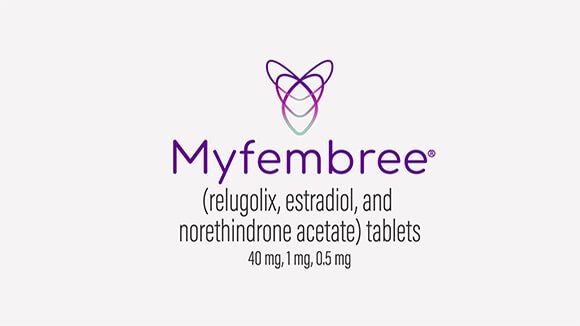Working to Advance Care for People Living With Ulcerative Colitis
As of 2019, it is estimated that ulcerative colitis (UC) affects 2.6 million people in Europe and an estimated 1 million people in the US.1,2 It is a chronic, life-long immune-mediated inflammatory disease associated with unpredictable patterns of relapse and remission. The disease causes irritation and ulcers on the inner lining of the large intestine. It is one of a group of diseases called inflammatory bowel disease (IBD). Signs of ulcerative colitis often present as recurring diarrhea, which may contain blood, mucus or pus, abdominal pain, and urgency amongst further symptoms. UC is associated with lower patient quality of life that is comparable to other serious chronic conditions and is worse in inadequately controlled patients. Sphingosine-1-phosphate (S1P) modulates the inflammatory pathway by regulating the egress of lymphocytes from lymph nodes, and lymphocytes have a pivotal role in the pathogenesis of inflammation in patients with IBD.3 Etrasimod, a once-daily, oral, S1P receptor modulator selectively activates S1P receptor subtypes 1, 4, and 5, which are believed to be involved in modulating the body's immune response by limiting movement of lymphocytes to sites of inflammation, while avoiding S1P receptors (S1P2,3) associated with serious AEs.
"Etrasimod could offer a meaningful clinical profile for people living with moderately-to-severe active ulcerative colitis"
In May 2022, we announced positive results from our phase 3 trials demonstrating potential substantial positive benefits of etrasimod. In the 52-week study, clinical remission was 27.0% for patients receiving etrasimod compared to 7.4% for patients receiving placebo at week 12 and was 32.1% compared to 6.7% at week 52. In the 12-week study, clinical remission was achieved among 24.8% of patients receiving etrasimod compared to 15.2% of patients receiving placebo. Safety findings were consistent with those reported in previous studies of etrasimod. The most common treatment-emergent AEs in 3% or more of etrasimod-treated patients and greater than placebo up to week 52 in either trial were headache, worsening of UC, COVID-19 infection, dizziness, pyrexia, arthralgia, abdominal pain and nausea. These data were presented as a late-breaker presentation at Digestive Disease Week (DDW) 2022.4 Additional subgroup analyses presented at United European Gastroenterology Week (UEGW) 2022 suggest that etrasimod may be particularly efficacious in patients naïve to or with one prior advanced therapy.5 Many patients living with ulcerative colitis might never achieve or maintain remission with the currently available treatment options. If approved by regulatory authorities, etrasimod has the potential to provide a new once-daily, oral option that could be an attractive first-line advanced therapy for patients with moderately-to-severely active ulcerative colitis. Key potential differentiators for etrasimod are that the data may support once-daily oral dosing without a complex dose titration scheme to start treatment. Lack of titration combined with its 30 hour half-life provide a fast onset of symptom relief along with fast offset/washout which can be advantageous in family planning and when the rate of immune reconstitution is critical.
“Etrasimod could offer a meaningful clinical profile for people living with moderately-to-severely active ulcerative colitis considering the clear benefit it has shown over 52 weeks in a treat-through trial design, its mechanism of action, and its unique pharmacologic properties,” said Michael Corbo, Chief Development Officer, Inflammation & Immunology, Pfizer Global Product Development. “Patients often need multiple options to help manage their disease, and there is a significant need for new therapies. In the ELEVATE clinical program, etrasimod has shown an encouraging balance of efficacy and safety that we believe could have a meaningful impact for patients and physicians if approved.”
- Seyedian SS, Nokhostin F, Malamir MD. A review of the diagnosis, prevention, and treatment methods of inflammatory bowel disease. J Med Life. 2019 Apr-Jun;12(2):113-122. doi: 10.25122/jml-2018-0075. PMID: 31406511; PMCID: PMC6685307.
- Extrapolation to US population today from Clin Gastroenterol Hepatol. 2017 June;15
- Aoki M, et al. Mediators Inflamm. 2016;2016:8606878
- Sandborn WJ, et al. Etrasimod 2 mg once daily as treatment for moderately to severely active ulcerative colitis: results from the phase 3 ELEVATE UC 52 and ELEVATE UC 12 trials. Lecture 968a, Digestive Disease Week 2022, 21–24 May, San Diego, CA, USA.
- MP289 Etrasimod 2mg Once Daily as Treatment for Biologic/Janus Kinase Inhibitor-Naïve and –Experienced Patients With Moderately to Severely Active Ulcerative Colitis: Subgroup Analysis From the Phase 3 ELEVATE UC 52 and ELEVATE UC 12 Trials. https://programme.ueg.eu/week2022/#/details/presentations/779


